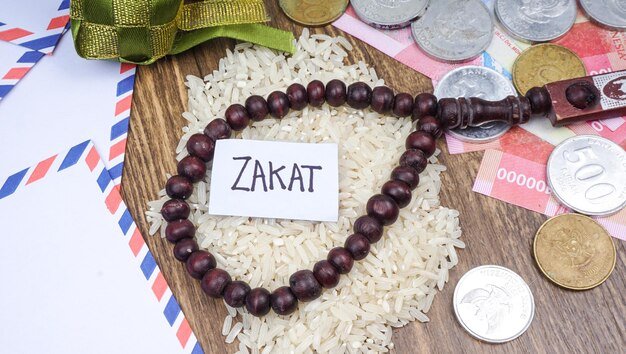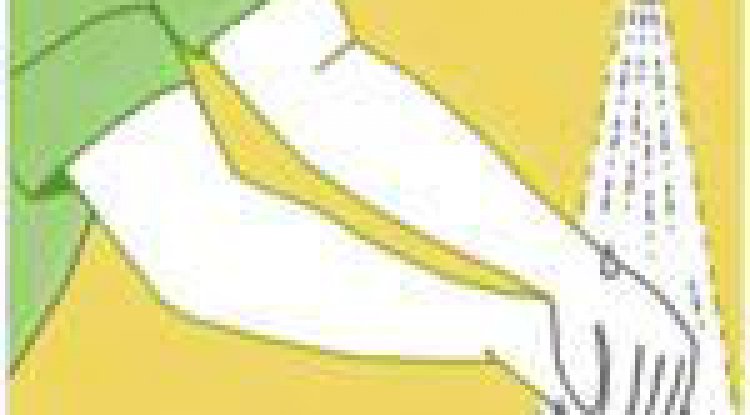fiqh of zakat, how to pay zakah, zakah and its calculations
TYPES OF POSESSIONS THAT REQUIRE PAYING THE ZAKAH , TYPES OF WEALTH THAT DO NOT REQUIRE ZAKAH, THE REQUIRED AMOUNT (NISAB) FOR ZAKAH , THE RECIPIENTS OF ZAKAH, HOW TO PAY ZAKAH,

ZAKAH & ITS CALCULATIONS
Continuing with Zakaah, As this is our last class this is a little long but InshaAllah beneficial as these are the things one must know.
TYPES OF POSESSIONS THAT REQUIRE PAYING THE ZAKAH
- Gold and Silver
This is based on Allah's Statement in the Noble Qur'an:
وَالَّذِينَ يَكْنِزُونَ الذَّهَبَ وَالْفِضَّةَ وَلَا يُنْفِقُونَهَا فِي سَبِيلِ اللَّهِ فَبَشِّرْهُمْ بِعَذَابٍ أَلِيمٍ
"And those who hoard up gold and silver (i.e. the money, the Zakat of which has not been paid) and spend them not in the way of Allah, announce unto them a painful torment," (9:34)
Also, the Prophet (Peace be upon Him), said: "There is no charity on what is less than five Uqiyyah (of silver)," (Al-Bukhari and Muslim)
(Note: Five Uqiyyahis equal to 595 grams.)
- Women's Jewelry That is made of Gold or Silver and is Used for Beautification Purposes
There is a difference of opinion amongst the scholars concerning Zakat on gold and silver jewelry that is kept for beautification and not sold for business purposes, The correct view is that there is Zakat due on it if it reaches the Nisab amount, The Prophet (Peace be upon Him) said: "Anyone who owns gold or silver and does not pay Zakat on them, on the Day of Resurrection they will be made into plates of fire and they will then bum his sides, forehead and back." (Muslim)
The Prophet (Peace be upon Him) also asked a woman whose daughter was wearing two gold bracelets, if she had paid the Zakat on them. When the woman replied that she had not, the Prophet (Peace be upon Him) said: "Would you be pleased to have Allah make two bracelets of fire from them on the Day of Judgement?" (Abu Dawud and An-Nasa'i and graded as good)
The Nisab amount for gold is twenty Mithqals, or 85 grams. The Nisab for silver is one hundred and forty Mithqals, or 595 grams. If the amount of gold and silver jewelry that a woman owns is less than these amounts, there is no Zakat due upon her jewelry.
- Rikaz (Buried Precious Metals or Minerals)
These are any precious metals, stones or minerals that are buried in the earth (such as buried treasures or mines) When they are found, 1/5th (20%) Zakat is due upon the find.
The Prophet (Peace be upon Him) said: "There is no compensation for one killed or wounded by an animal, or by falling in a well, or due to working in mines: and one-fifth (Zakat) is compulsory on Rikaz," (Al-Bukhari and Muslim)
- Livestock Animals: Camels, Cows, and Sheep
Allah's Messenger (Peace be upon Him) said: "Whoever had camels or cows or sheep, and did not pay their Zakat those animals will be brought on the Day of Resurrection far bigger and fatter than before, They will trample him with their hooves and butt him with their horns, When the last has its turn, the first will start again, and this punishment will go on until Allah has finished the judgements amongst the people," (Al-Bukhari and Muslim)
- Food Grains and Fruit
Certain crops and grains that could be kept or stored require Zakat to be paid on them. The grains that require Zakat are barley and wheat. The fruits that require Zakat to be paid are dates (fresh and dried) and raisins, However, this does not include the fruit and grains that one intends to feed oneself and one's family with, This ruling applies to a person like a farmer who harvests and sells fruit and grains that he does not intend to use for his own needs and the needs of his family, Allah (S.W.T) said interpretation of the meaning in english: -
"... but pay the due thereof on the day of its harvest..." (6: 141)
Allah's Messenger (Peace be upon Him) said: "On a land irrigated by rain water or by natural water channels or land that is wet due to a nearby water channel. One-tenth (10%) is compulsory (as Zakat); on the land irrigated by a well. half of a tenth (5%) is compulsory (as Zakat on the yield of the land)." (Al-Bukhari and Muslim)
He (Peace be upon Him) also said: "There is no Zakat due on what is less than five Wasqs (of grains or vegetation)." (Al-Bukhari and Muslim)
(Note: Five Wasqs are approximately 618 kg; One Wasq = 60 Sa' of measured grain.)
TYPES OF WEALTH THAT DO NOT REQUIRE ZAKAH
- Fruits, Vegetables and Grains Other Than Dates, Raisins, wheat and Barley
There is no evidence that other produce requires Zakat. The Prophet (Peace be upon Him) never levied Zakat on any produce or grain other than these four items. Yet, it is preferred to give away some of this produce to the poor and neighbors. Allah (S.W.T) said:
يَا أَيُّهَا الَّذِينَ آمَنُوا أَنْفِقُوا مِنْ طَيِّبَاتِ مَا كَسَبْتُمْ وَمِمَّا أَخْرَجْنَا لَكُمْ مِنَ الْأَرْضِ
"O you who believe! Spend of the good things which you have (legally) earned, and of that which We have produced from the earth for you..." (2:267)
- Servants, Horses, Mules and Donkeys
Allah's Messenger (Peace be upon Him) said: "There is no charity required from the Muslim regarding his horse or servant." (Al-Bukhari and Muslim)
Further, it has not been reported that the Prophet (Peace be upon Him) ever collected charity on mules or donkeys.
- The Money that does not Reach the Amount of Nisab
Allah's Messenger (Peace be upon Him) said: "There is no Zakat on less than five Wasqs (approximately 618 kilograms of grain). There is no Zakat on less than five Uqiyyah of silver (595 grams). And there is no Zakat on less than five camels (Al-Bukhari and Muslim)
- The Property That is not Used for Commercial Purposes
These include rugs, homes, cars, furniture, precious stones, pearls, and diamonds that are not used for commercial purposes. These personal items do not require payment of Zakat.
- Women's Jewelry That is used for Beautification Purposes
This applies to any precious stones, such as pearls, diamonds and so forth. There is no Zakat due on them Therefore, any necklaces, bracelets broaches or rings that are made a materials other than gold and silver do not require payment of Zakat.
THE REQUIRED AMOUNT (NISAB) FOR ZAKAH
- Gold
The amount of gold that requires Zakat is around 85 grams, when this amount or more has remained unchanged in one's possession for one full year. The required Zakat in this case is one-fourth of a tenth (2.5%).
- Silver
Silver requires Zakat to be paid when it reaches 595 grams or more and when this amount remains unchanged in one's possession for a full year. The amount of Zakat required in this case is also one-fourth of a tenth (2.5%)
- Cash at One's Disposal
When it is worth the amount of gold or silver that requires Zakat and when this amount remains above the Nisab value for a full year. Zakat in this case is also one-fourth of a tenth, or 2.5%.
- Items Used for Business Transactions and Commercial Purposes
This requires a fourth of a tenth (2.5%) Zakat to be paid on them, when they remain a full year without decreasing below the Nisab amount. The minimum amount of the value of business merchandise that requires Zakat to be paid is the same as gold and silver, and the merchant could use either standard to estimate how much Zakat he should pay.
- Treasures
When the Muslim finds any treasures hidden in his land, he is required to give a fifth (20%) of that treasure in charity as Zakat.
- Mines
Mines, such as gold and silver mines, require Zakat to be paid on them whenever the minerals are discovered and extracted, just as the case with produce. Mines for extracting precious metals and minerals fall under the ruling of Rikaz and thus 1/5th (20%) Zakat is due upon them just as with buried treasure.
- Returns on Investments
If the investment is merchandizing transactions or animal products, then the Zakat for these returns on investment should be paid in addition to, and at the same time when the Zakat is paid on the principal, even if these profits did not remain for a full year. For instance, if the animal gives birth when the Zakat on the animals is due, then the owner should add all of these animals together and pay the Zakat due on all of them, and such is the case with monetary investments. When one earns money from inheritance or gifts, the Zakat becomes due if such inheritance reaches the minimum amount that requires Zakat and remains for a full year in one's possession without decreasing below the Nisab amount.
- Livestock
Grazing camels, grazing cows and grazing sheep and goats are eligible for Zakat payment. Each category of the above mentioned livestock animals has a set Nisab amount based upon the number of animals owned. These figures can be researched from the appropriate books of Islamic Jurisprudence.
- Fruits and Grains
When the produce is ready for harvest and the fruits become ripe, then the Zakat on them is due. Allah (S.W.T)says interpretation of the meaning in English is: -
"...but pay the due thereof (their Zakat) on the day of their harvest..." (6:141)
As for fruit, every type of fruit has its own standard as to when it is ripe and ready to eat. For instance, dates are ripe when they become red or yellow, while grapes are ripe when they become sweet.
The amounts of fruits and grains that require Zakat is five Wasqs, each of which is sixty Sa', and a Sa' is slightly less than three kilograms. Hence, the minimum Nisab that requires Zakat on dates. raisins, wheat and barley is three hundred Sa' (or approximately 618 kg). If the crop is watered without much effort, such as by spring water or by rain, it requires one-tenth (10%) as Zakat payment. This means that half of a Wasq is due for every five Wasqs. If such produce is watered with effort. such as from wells or irrigation channels, it requires a half of a tenth (5%) as Zakat payment. This means for every five Wasqs, there is a quarter of a Wasq due for Zakat.
Allah's Messenger (Peace be upon Him) said: "On a land irrigated by rain water, or by natural water channels, or if the land is wet due to a nearby water channel, one-tenth is compulsory (as Zakat). On the land irrigated by a well. half of one tenth is compulsory (as Zakat on the yield of the land)," (Al-Bukhari and Muslim)
THE RECIPIENTS OF ZAKAH
Zakat is spent on eight groups of people, as mentioned in the Qur'an:
إِنَّمَا الصَّدَقَاتُ لِلْفُقَرَاءِ وَالْمَسَاكِينِ وَالْعَامِلِينَ عَلَيْهَا وَالْمُؤَلَّفَةِ قُلُوبُهُمْ وَفِي الرِّقَابِ وَالْغَارِمِينَ وَفِي سَبِيلِ اللَّهِ وَابْنِ السَّبِيلِ ۖ فَرِيضَةً مِنَ اللَّهِ ۗ وَاللَّهُ عَلِيمٌ حَكِيمٌ
"As-Sadaqat (here it means Zakat) is only for the Fuqara '(poor), and Al Masakin (the needy who do not beg) and those employed to collect (the funds); and to attract the hearts of those who have been inclined (towards Islam); and to free the captives; and for those in debt; and for Allah's cause (i.e., for Mujahidun -those fighting in a battle for the cause of Islam), and for the wayfarer (a traveler who is cut off from everything); a duty imposed by Allah. And Allah is All-Knower, All-Wise." (9:60)
HOW TO PAY ZAKAH
We have discussed who must pay Zakat, how much is to be paid and who are its recipients. Now, the issue remains as to how the Zakat is to be paid. In an Islamic state, the Muslim leader (Khalifah, Ameer, etc.) is responsible for the collection of Zakat. His duty is to make sure that those Muslims who possess the minimum amount of wealth (Nisab) pay their Zakat in a timely manner. The ruler will deputize certain trustworthy men to go about amongst the Muslims and collect the Zakat from those upon whom it is due. He is also responsible for making sure that the Zakat is distributed amongst those who are worthy of receiving it.
In a situation where the Muslim lives in a land (i.e. country. state, province. etc.) where there is no Muslim ruler, and the governing authorities are non-Muslims, then it is left to the individual to pay his Zakat as he sees fit. The person must keep up with his own earnings and savings, and determine for himself, based upon the previously mentioned conditions, when Zakat is due upon his wealth. Likewise, he must decide who is most deserving of receiving his Zakat. He may either distribute it amongst those whom he knows to be qualified recipients or he may give it to a local mosque to be distributed amongst those who are needy.
In a non-Muslim society, no Muslim (individual or group) has the right to demand Zakat from others by force, violence or any such threats. This is a right that is specifically for the Muslim rulers in the lands of the Muslims.
What's Your Reaction?



















